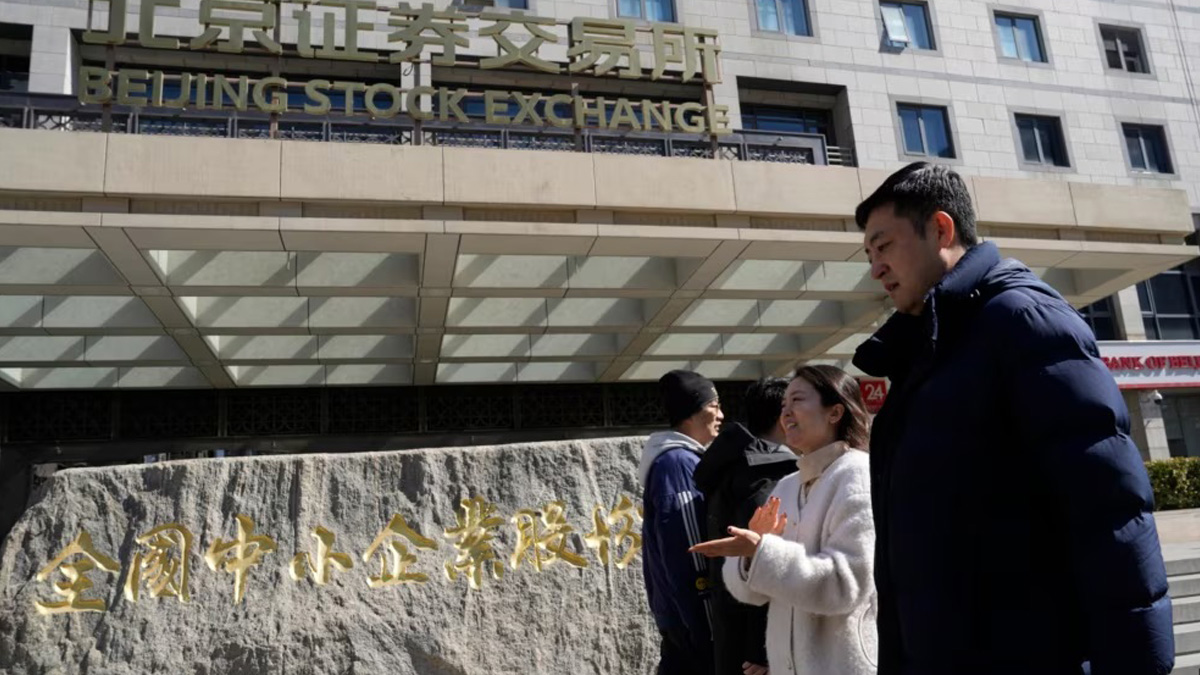
China’s Stock Markets See Volatile Reactions Amid New Fiscal Policies
China’s stock markets had a turbulent session on Monday, showing mixed reactions to the finance ministry’s latest fiscal policies unveiled over the weekend. Hong Kong’s Hang Seng Index dropped by 0.75%, while mainland stocks saw a rebound, with the Shanghai Composite rising by 2.07%, though the momentum slowed later in the day.
While some investors expressed hope over Beijing’s promise of fiscal support, analysts warned that the measures, combined with the central bank’s recent monetary easing, might not be aggressive enough to stimulate growth. Raymond Yeung, chief economist for Greater China at Australia and New Zealand Banking Group, noted that while the policies are moving in the “right direction,” they do little to address the structural challenges facing the world’s second-largest economy.
Unmet Expectations for Stimulus
Investors had been anticipating a substantial stimulus package, ranging from 2 trillion to 10 trillion yuan ($283 billion–$1.4 trillion), reminiscent of China’s 4 trillion yuan ($564 billion) injection during the 2008 financial crisis. However, during the weekend briefing, Finance Minister Lan Foan did not disclose the size of the stimulus, instead pledging support for defusing local debt risks and reviving the property market. This approach, seen as conservative, left stock investors uncertain about the market’s trajectory.
Yeung predicted continued market corrections as doubts linger over the effectiveness of the stimulus to combat high unemployment and sluggish economic growth. The central bank’s monetary easing measures in September failed to curb inflation, with China’s consumer price index (CPI) rising by only 0.4%, below expectations, and producer prices continuing their 24-month decline.
Market Outlook and Investor Sentiment
Although monetary policy boosted stock prices for seven consecutive days before a sharp drop last Wednesday, investor sentiment remains cautious. On Chinese social media platform Weibo, some users expressed optimism about the economy, while others predicted a continued market slump. One user speculated that the market could experience a five-day losing streak.
Economist He Jiangbing estimated that the finance ministry plans to issue at least 3.2 trillion yuan ($451 billion) in bonds, pending approval by the National People’s Congress. This would include 1 trillion yuan ($141 billion) for state-run banks, 1.2 trillion yuan ($169 billion) for local government debt relief, and another 1 trillion yuan for consumption subsidies or support for vulnerable groups.
Challenges to Economic Revival
Despite the proposed bond issuances, He argued that such fiscal measures are insufficient to address the root causes of China’s economic slowdown. He emphasized that China needs to repair relations with major global economies to boost exports and prevent the outflow of foreign businesses, especially with the recent departure of two-thirds of Japanese companies from China.
He also pointed out the need for China to reduce its focus on state-run enterprises and ease regulatory pressures on private businesses to foster economic recovery. Without addressing these fundamental issues, experts warn that China’s economy may struggle to regain momentum despite fiscal and monetary interventions.
- Light Rainfall Forecasted in Koshi and Gandaki Regions Today
- Nepal’s Trade Deficit Surpasses Rs 460 Billion in First Four Months of Fiscal Year
- Indian Army Chief General Upendra Dwivedi Visits Muktinath Temple and Nepal Army’s Western Division Headquarters
- Indian Army Chief Visits Pokhara, Honors Gorkha Veterans and Gallantry Awardees













Comments